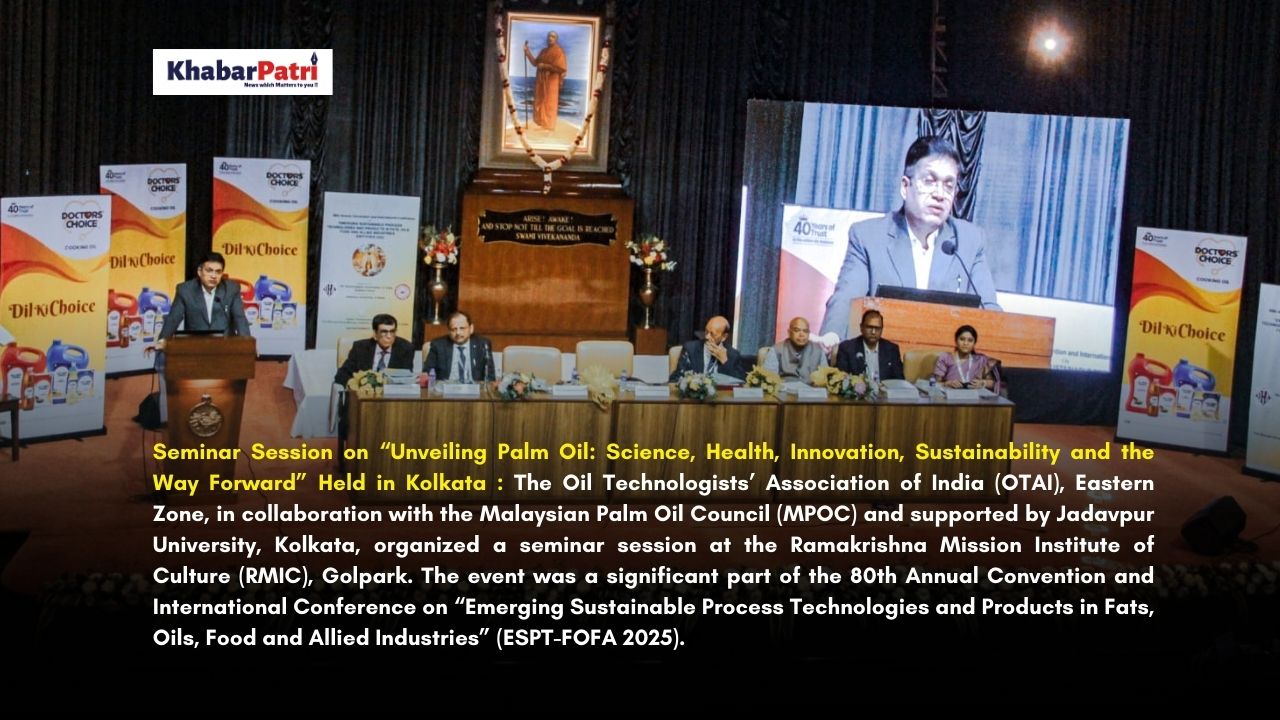Kolkata : The Oil Technologists’ Association of India (OTAI), Eastern Zone, in collaboration with the Malaysian Palm Oil Council (MPOC) and supported by Jadavpur University, Kolkata, organized a seminar session at the Ramakrishna Mission Institute of Culture (RMIC), Golpark. The event was a significant part of the 80th Annual Convention and International Conference on “Emerging Sustainable Process Technologies and Products in Fats, Oils, Food and Allied Industries” (ESPT-FOFA 2025).
The seminar, titled “Unveiling Palm Oil: Science, Society, Innovation, Sustainability and the Way Forward,” aimed to promote clarity, scientific understanding, and constructive dialogue around palm oil—one of the world’s most crucial yet debated agricultural commodities.
Bringing together scientists, industry leaders, medical experts, sustainability professionals, policymakers, and community stakeholders, the session focused on presenting balanced, evidence-based insights on the role of palm oil in global food systems, energy, and consumer goods. Experts dismissed long-standing myths, emphasizing that palm oil is naturally trans-fat-free, rich in antioxidants, and contains a balanced fatty acid composition, making it nutritionally suitable and stable for Indian culinary practices.
Central to the discussion was the commitment to scientific integrity and transparent communication. Speakers highlighted interdisciplinary research covering agronomy, land-use change, biodiversity conservation, climate impacts, and supply-chain verification, ensuring the narrative around palm oil remains rooted in data rather than assumptions.
The seminar also acknowledged the significant socio-economic contributions of the palm oil sector, which supports millions of smallholder farmers across Asia, Africa, and Latin America. Themes of equitable trade, rural development, and cultural importance of palm cultivation were discussed in detail.
Aligned with the Government of India’s National Mission on Edible Oils – Oil Palm (NMEO-OP) launched in August 2021, the seminar emphasized sustainability, good governance, innovation, and collaboration. It called for harmonized certification systems, enhanced transparency, and reduced environmental footprint, while aligning industry practices with global frameworks such as the Sustainable Development Goals (SDGs).
The initiative successfully created a cross-sector, multi-stakeholder platform dedicated to deepening understanding of palm oil’s complexities and identifying pathways for responsible, science-based progress. The session reinforced the need for ongoing collaboration among industrialists, researchers, policymakers, students, and consumers. This seminar marked a comprehensive effort to transform understanding and drive responsible advancement within the global palm oil ecosystem.

